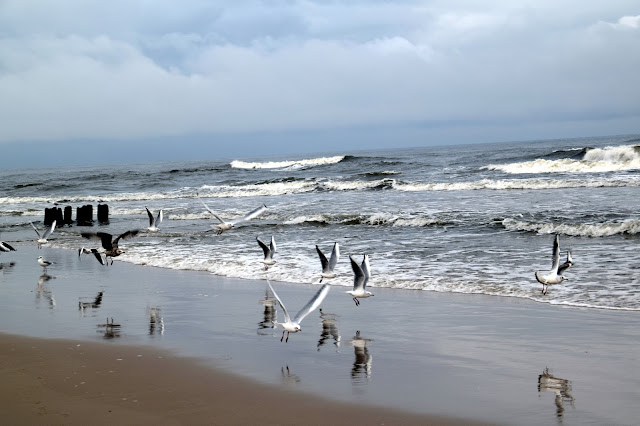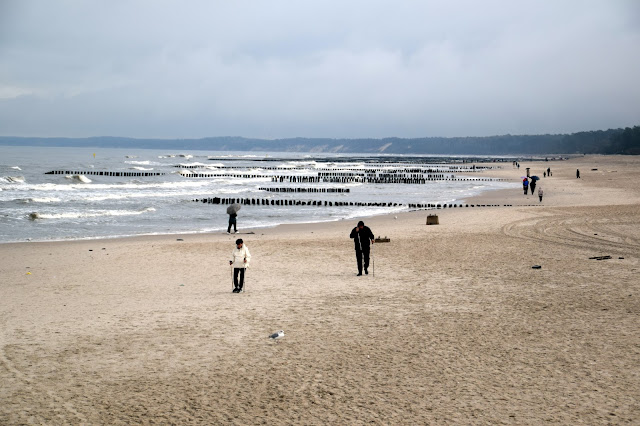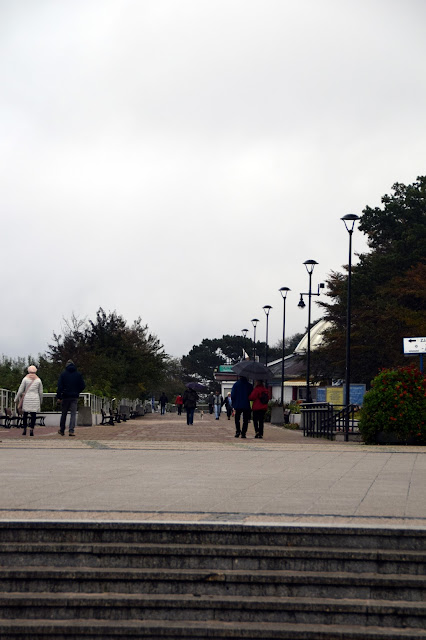Situated on the Baltic Sea, the town of Ustka is one of Poland’s best
known bathing resorts. The town becomes increasingly
more popular with tourists both from Poland and from abroad, with
thousands visiting every year.
The town boasts two beautiful beaches divided by the river Slupia. Being
situated closer to the centre, the eastern beach enjoys far greater
popularity among visitors than the western beach, which leads into the
Navy Training Centre. Much more developed and surrounded by bars,
restaurants, a concert hall, and the 19th century waterfront promenade,
Ustka’s eastern beach has also been a cause of considerable expense for
the town authorities as the beach is being gradually worn away by the
sea.
Ustka takes pride in a long railway history, with the first passenger
train to leave the town departing on 1st October 1878. The construction
of the railway helped the town to start capitalising on tourism, and now
since the collapse of the Ustka Shipyard the local authorities have
been looking on tourism as the main source of income for the town.
Interesting thing to see is the unfinished pier, the construction of which was started by the Germans at the beginning of World War II, a fact which attracts legends and myths related to Nazi Germany. Worthy of a visit is the lighthouse from 1871, the Main Post Office from 1875, and a church from 1882, while an unmissable event is the International Contest of Fireworks organised annually in July.
Interesting thing to see is the unfinished pier, the construction of which was started by the Germans at the beginning of World War II, a fact which attracts legends and myths related to Nazi Germany. Worthy of a visit is the lighthouse from 1871, the Main Post Office from 1875, and a church from 1882, while an unmissable event is the International Contest of Fireworks organised annually in July.
The first written records of Ustka date from 1337. For over five hundred
years Ustka officially belonged to the city of Slupsk. The
establishment of the railway in 1878 led to an influx of visitors and as
a consequence the number of inhabitants gradually increased too. This
situation resulted in the rapid development of the service sector in the
region. A fast growing holiday resort, Ustka was granted a town charter
in 1935. Very early on, the town became Germanised by settlers invited
by the Slavonic Dukes of Pomerania. It belonged to the Kingdom of
Prussia, the German Empire, the Weimar Republic and Nazi Germany
respectively. In 1945, as a result of the Potsdam Conference, the town
was ceded to Poland. A popular destination for sun lovers and
holidaymakers, Ustka is now one of the most famous tourist landmarks in
Poland.
[ http://www.staypoland.com/about_ustka.htm]
 |
| Ustka lighthouse was built at the base of the eastern breakwater in 1892. Its light is visible from a distance of nearly 30km. In the summer tourists can visit it. |
 |
| The first port breakwaters were built in the fourteenth century. Port was built between 1809-1810 and 1864-1903. Currently the port handles mostly fishing boats, tourist boats and yachts. |


































No comments:
Post a Comment